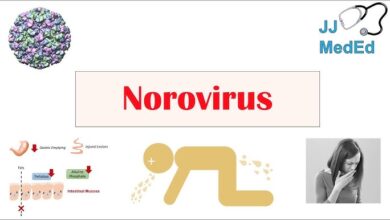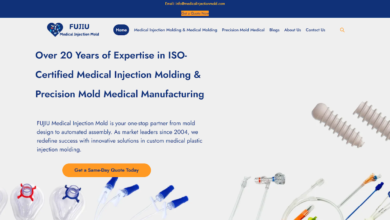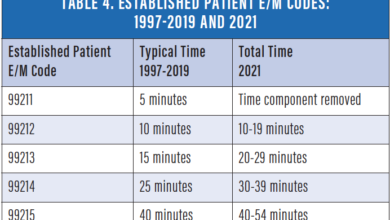Mommy Matters: Ten Tips for Better Mental Health After a Baby

Becoming a mother is one of the most profound changes a woman can experience, filled with joy, awe, and love. However, it can also introduce complex emotions, including the risk of postpartum depression. This condition extends beyond hormonal fluctuations. A mother has to go through significant physical and lifestyle transformations, which can take a toll on her mental health. For mothers in Miami, where there’s a heightened focus on aesthetics, these challenges can feel magnified. Recognizing and addressing mental health during this pivotal time is crucial. Hence, for all the new moms out there, here are ten essential mental health tips to help you embrace this new chapter with strength and positivity.
Acknowledge Your Feelings
The first step towards mental well-being is acknowledging the spectrum of emotions that accompany motherhood. It’s normal to feel overwhelmed, sad, or anxious alongside the happiness. You must remember that these feelings do not reflect your capability or love as a mother. Accepting them without self-judgment encourages a healthier emotional process. Creating a space to talk about these feelings, whether with a partner, friend, or support group, can provide validation and comfort.
Physical Health and Appearance
For many new mothers, the postpartum body can be a source of stress. In the quest to “bounce back,” it’s essential to approach this goal with care. Start with gentle exercises approved by your healthcare provider and focus on nourishing your body with balanced meals. In Miami, also considered the Plastic Surgery capital of the U.S., there is a great emphasis on physical appearance, and this city has some of the best cosmetic surgeons in the country. Hence, you might consider cosmetic procedures, such as a mommy makeover, which can include breast augmentation, tummy tucks, and more. Contact a credible facility to learn about the complete mommy makeover cost in Miami FL, and to book a consultation. However, these should only be considered after a thorough recovery period post-breastfeeding and if no further pregnancies are planned. It’s crucial to remember that these procedures are not a substitute for a healthy lifestyle and should be pursued only after careful consideration and consultation with medical professionals.
Establish a Support Network
A robust support network is invaluable for new moms. This network can include family, friends, and even new acquaintances who are going through similar experiences. Support groups, whether found through local community centers or online platforms, can help create a sense of belonging and understanding. You get to share your experiences with others who understand the unique challenges of motherhood, which can be incredibly reassuring.
Set Realistic Expectations
Adjusting your expectations about motherhood and your daily achievements is vital. The portrayal of motherhood in media often glosses over the difficulties, creating unrealistic standards. Understand that it’s okay to not have everything figured out and that it’s okay to have days where the only accomplishment is taking care of your baby. Redefining success on your terms can alleviate unnecessary pressure and foster a more positive mental space.
Prioritize Sleep
Sleep becomes a precious commodity for new parents. The lack of it not only affects physical health but can significantly impact mental well-being. While it might seem impossible with a newborn, employing strategies such as sleeping when the baby sleeps or sharing nighttime duties with a partner can help. Even short naps can be rejuvenating, so take them when you can.
Find Time for Yourself
Motherhood, especially in its initial stages, can consume every moment of your day. Yet, finding time for yourself is crucial for mental well-being. It’s essential to carve out moments, however brief, for activities that rejuvenate your spirit. Whether it’s resuming a hobby, reading, or simply enjoying a quiet coffee, these moments of solitude can significantly enhance your mood and reduce feelings of being overwhelmed. It’s not selfish to take this time; it’s necessary self-care that benefits both you and your baby by maintaining your sense of identity and well-being.
Practice Mindfulness and Relaxation Techniques
Certain techniques for relaxation and mindfulness are powerful tools for managing stress and anxiety, common companions in the postpartum period. Practices such as meditation, yoga, or deep-breathing exercises can help anchor your thoughts in the present, alleviating worries about the future or regrets about the past. These practices not only improve mental health but can also enhance your physical well-being, providing a calm and centered presence for your baby.
Seek Professional Help When Needed
Despite all efforts, some mothers may find themselves struggling with postpartum depression or anxiety. Recognizing when you need professional help is a critical step toward recovery. Mental health professionals can offer therapy, counseling, and sometimes medication to manage these conditions effectively. It’s important to remember that seeking help is a sign of strength and an act of love towards yourself and your family. Early intervention can lead to better outcomes and a faster return to well-being.
Stay Active
Physical activity is a vital component of postpartum recovery, significantly impacting mental health. Engaging in light, doctor-approved exercise such as walking can boost mood, improve sleep, and reduce symptoms of anxiety and depression. Exercise doesn’t have to be strenuous to be effective; even gentle movement with your baby, like stroller walks in the park, can be beneficial. Physical activity can also be a great way to connect with other new mothers, adding a social component to your routine.
Nutrition and Hydration
A balanced diet plays a crucial role in postpartum mental health. Foods rich in nutrients support not only physical recovery but also cognitive function and emotional regulation. Omega-3 fatty acids, found in fish and flaxseeds, for example, can support mood stabilization. Similarly, staying hydrated, particularly for breastfeeding mothers, is essential for overall health and well-being. Although nutrition might take a backseat amid the demands of newborn care, it remains a fundamental aspect of self-care and must not be ignored.
Conclusion: Embrace the New You!
Transitioning to motherhood is a journey filled with challenges and triumphs. By prioritizing your mental health through these tips, you can navigate the postpartum period with resilience and joy. Remember, taking care of yourself is not just about personal well-being but also about being your best for your new baby. Embrace the journey with patience, love, and support, knowing you’re not alone in this beautiful chapter of life.



